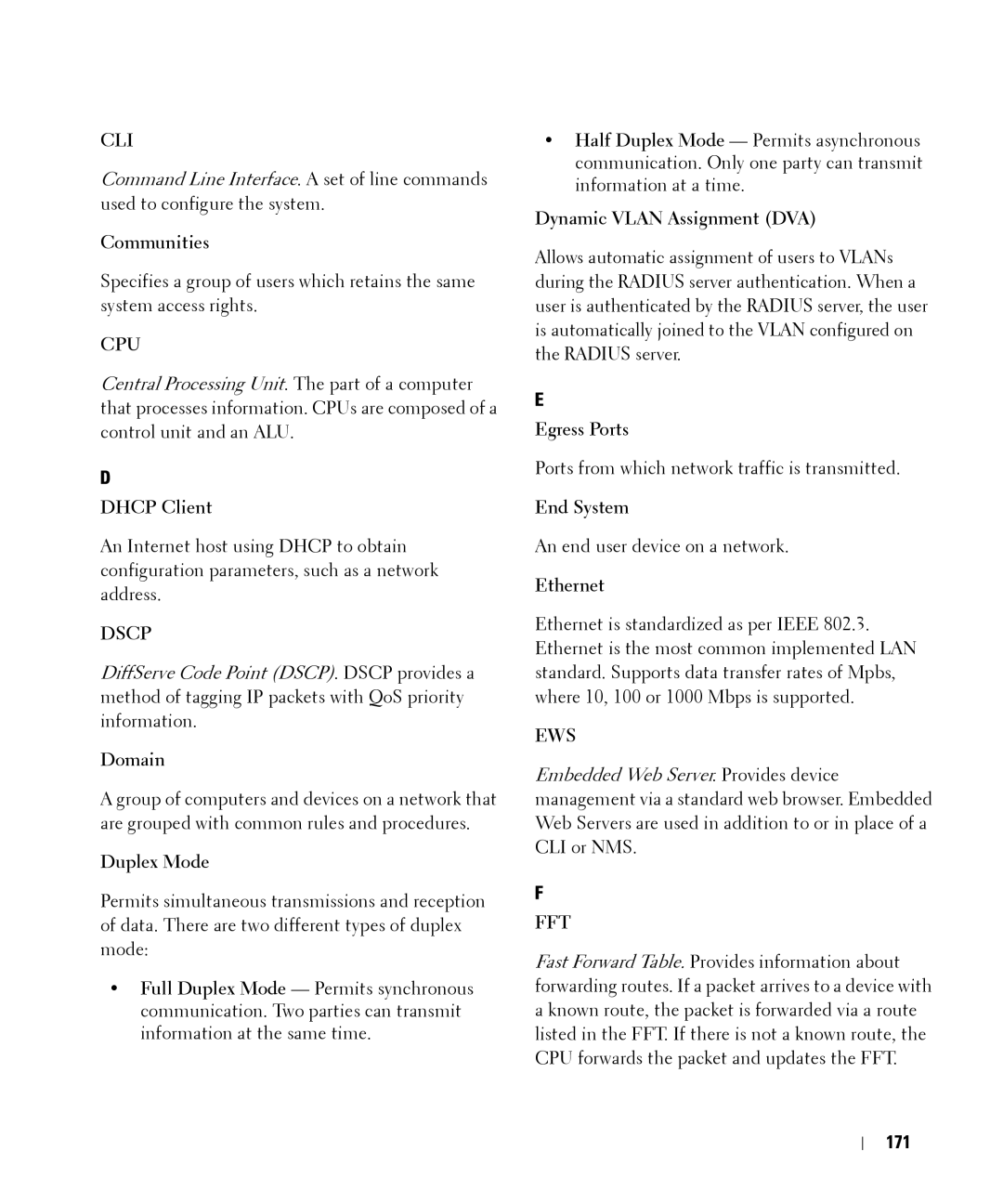CLI
Command Line Interface. A set of line commands used to configure the system.
Communities
Specifies a group of users which retains the same system access rights.
CPU
Central Processing Unit. The part of a computer that processes information. CPUs are composed of a control unit and an ALU.
D
DHCP Client
An Internet host using DHCP to obtain configuration parameters, such as a network address.
DSCP
DiffServe Code Point (DSCP). DSCP provides a method of tagging IP packets with QoS priority information.
Domain
A group of computers and devices on a network that are grouped with common rules and procedures.
Duplex Mode
Permits simultaneous transmissions and reception of data. There are two different types of duplex mode:
•Full Duplex Mode — Permits synchronous communication. Two parties can transmit information at the same time.
•Half Duplex Mode — Permits asynchronous communication. Only one party can transmit information at a time.
Dynamic VLAN Assignment (DVA)
Allows automatic assignment of users to VLANs during the RADIUS server authentication. When a user is authenticated by the RADIUS server, the user is automatically joined to the VLAN configured on the RADIUS server.
E
Egress Ports
Ports from which network traffic is transmitted.
End System
An end user device on a network.
Ethernet
Ethernet is standardized as per IEEE 802.3. Ethernet is the most common implemented LAN standard. Supports data transfer rates of Mpbs, where 10, 100 or 1000 Mbps is supported.
EWS
Embedded Web Server. Provides device management via a standard web browser. Embedded Web Servers are used in addition to or in place of a CLI or NMS.
F
FFT
Fast Forward Table. Provides information about forwarding routes. If a packet arrives to a device with a known route, the packet is forwarded via a route listed in the FFT. If there is not a known route, the CPU forwards the packet and updates the FFT.
